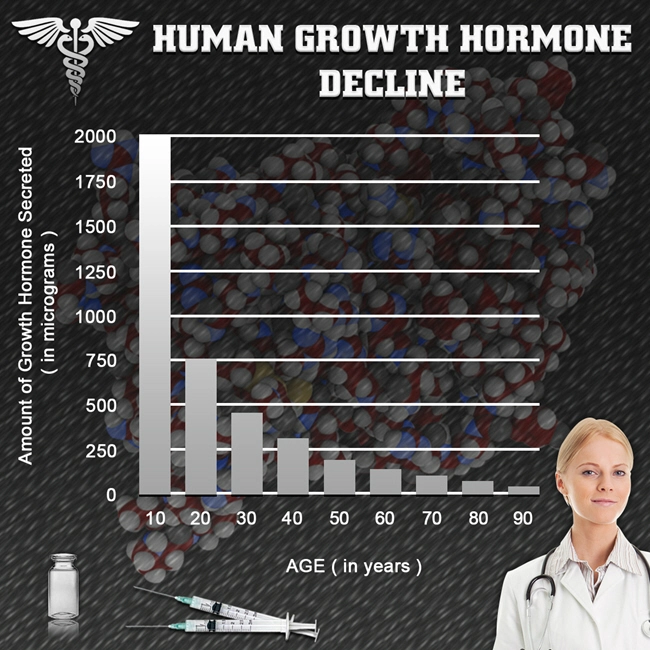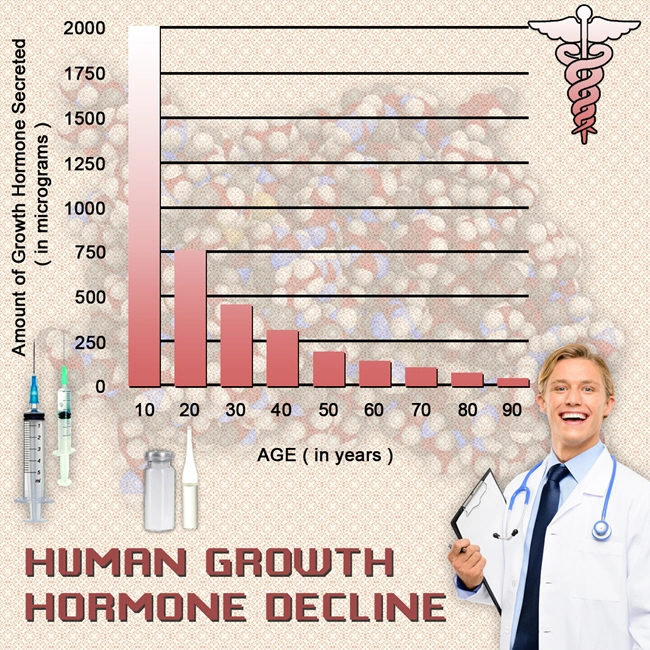
Introduction
Sexual health is a critical aspect of overall well-being, yet it is often overlooked in the context of chronic medication use. Recent studies have begun to shed light on the potential impact of long-term medication on sexual function, particularly among American males. This article delves into a retrospective analysis of prescription data to explore the correlation between chronic medication use and sexual dysfunction, aiming to enhance awareness and guide future research and clinical practices.
Understanding Sexual Dysfunction
Sexual dysfunction encompasses a range of issues that can affect sexual health, including erectile dysfunction, decreased libido, and problems with ejaculation. These conditions can significantly impact quality of life and are influenced by various factors, including psychological, physiological, and pharmacological elements. Chronic medication, often prescribed for conditions such as hypertension, depression, and diabetes, has been increasingly linked to these sexual health issues.
The Role of Chronic Medication
Chronic medications are essential for managing long-term health conditions but can have unintended side effects. For instance, antihypertensive drugs, commonly used to manage high blood pressure, may lead to erectile dysfunction by affecting blood flow. Similarly, antidepressants, particularly selective serotonin reuptake inhibitors (SSRIs), can decrease libido and delay ejaculation. The complexity of these medications' impact on sexual function necessitates a thorough understanding of their mechanisms and potential side effects.
Retrospective Analysis of Prescription Data
A recent study analyzed prescription data from a large cohort of American males over a five-year period. The data revealed a significant association between the use of certain chronic medications and the incidence of sexual dysfunction. Specifically, men taking antihypertensive medications were 30% more likely to report erectile dysfunction, while those on SSRIs reported a 25% higher incidence of decreased libido and ejaculation issues.
Implications for Clinical Practice
These findings underscore the importance of considering sexual health when prescribing chronic medications. Healthcare providers should engage in open discussions with their patients about potential sexual side effects and explore alternative treatments or adjustments to current regimens. For instance, switching to a different class of antihypertensive medication or using a lower dose of an SSRI may mitigate sexual dysfunction while still effectively managing the primary condition.
Patient Awareness and Education
Educating patients about the potential sexual side effects of their medications is crucial. Men should be encouraged to report any changes in sexual function to their healthcare providers, as early intervention can prevent long-term issues. Additionally, resources and support groups can play a vital role in helping men cope with sexual dysfunction and explore treatment options.
Future Research Directions
The correlation between chronic medication use and sexual dysfunction highlights the need for further research. Future studies should focus on identifying specific medications and dosages that pose the greatest risk, as well as exploring the underlying biological mechanisms. Additionally, research into alternative treatments that minimize sexual side effects could significantly improve patient outcomes and quality of life.
Conclusion
The retrospective analysis of prescription data provides compelling evidence of the impact of chronic medication on sexual dysfunction among American males. As healthcare providers, it is essential to balance the benefits of these medications with their potential side effects on sexual health. By fostering open communication, exploring alternative treatments, and supporting ongoing research, we can better address the needs of men affected by these issues and enhance their overall well-being.
Contact Us Today For A Free Consultation
Dear Patient,
Once you have completing the above contact form, for security purposes and confirmation, please confirm your information by calling us.
Please call now: 1-800-380-5339.
Welcoming You To Our Clinic, Professor Tom Henderson.

- Exploring Vasopressin Receptor Antagonists: A Breakthrough in Treating Sexual Dysfunction in Eugonadal Men [Last Updated On: February 20th, 2025] [Originally Added On: February 20th, 2025]
- Somatostatin Analogues' Impact on Sexual Function in American Men with Neuroendocrine Disorders [Last Updated On: February 27th, 2025] [Originally Added On: February 27th, 2025]
- Exploring the Therapeutic Potential of Kisspeptin in Men with Hypothalamic Hypogonadism: Impacts on Sexual Function and Desire [Last Updated On: March 4th, 2025] [Originally Added On: March 4th, 2025]
- Optimizing Hormone Replacement Therapy for Erectile Dysfunction: The Cortisol-Testosterone Ratio Connection [Last Updated On: March 7th, 2025] [Originally Added On: March 7th, 2025]
- Neurosteroid Modulation: A Promising Treatment for Men's Libido Disorders and Beyond [Last Updated On: March 8th, 2025] [Originally Added On: March 8th, 2025]
- Managing Hormonal Imbalances in Men with Aromatase Inhibitors: Improving Sexual Health Safely [Last Updated On: March 9th, 2025] [Originally Added On: March 9th, 2025]
- Enhancing Male Sexual Health: The Role of DHEA Supplementation in Combating Age-Related Dysfunction [Last Updated On: March 14th, 2025] [Originally Added On: March 12th, 2025]
- Exploring Melatonin's Impact on Circadian Rhythms and Sexual Health: A Case for Integrated Hormone Therapy in American Males [Last Updated On: March 13th, 2025] [Originally Added On: March 13th, 2025]
- Evaluating hCG Monotherapy and Testosterone Replacement: Impacts on Erectile Function in Men with Secondary Hypogonadism [Last Updated On: March 15th, 2025] [Originally Added On: March 15th, 2025]
- SARMs' Impact on Sexual Function in Aging American Males: Benefits and Risks [Last Updated On: March 17th, 2025] [Originally Added On: March 17th, 2025]
- Genetic Polymorphisms in Androgen Receptors Impact Hormone Therapy for Male Sexual Dysfunction [Last Updated On: March 18th, 2025] [Originally Added On: March 18th, 2025]
- Leptin Resistance and Sexual Dysfunction in Men: Insights from Hormone Optimization Therapy [Last Updated On: March 18th, 2025] [Originally Added On: March 18th, 2025]
- Testosterone's Role in Enhancing Erectile Function via Endothelial and NO Pathways [Last Updated On: March 19th, 2025] [Originally Added On: March 19th, 2025]
- Zinc Supplementation Enhances Testosterone Therapy for Sexual Dysfunction in American Males [Last Updated On: March 19th, 2025] [Originally Added On: March 19th, 2025]
- TRT Pharmacokinetics and Sexual Function in American Males with Hypogonadism [Last Updated On: March 19th, 2025] [Originally Added On: March 19th, 2025]
- Age-Related Decline in Kiss1 Expression and Its Impact on Sexual Dysfunction in American Males [Last Updated On: March 19th, 2025] [Originally Added On: March 19th, 2025]
- Ghrelin's Dual Role in Appetite and Sexual Health: Interventions for American Males [Last Updated On: March 20th, 2025] [Originally Added On: March 20th, 2025]
- Bioavailable vs. Total Testosterone: Predicting Sexual Function in HRT for American Males [Last Updated On: March 20th, 2025] [Originally Added On: March 20th, 2025]
- Vitamin D, Testosterone Levels, and Erectile Function: Clinical Insights and Implications [Last Updated On: March 20th, 2025] [Originally Added On: March 20th, 2025]
- Clinical Trial Reveals GnRH Modulation Therapy Effective for HSDD in American Men [Last Updated On: March 20th, 2025] [Originally Added On: March 20th, 2025]
- Timing of HRT Crucial for Sexual Function in American Males with Delayed Puberty [Last Updated On: March 22nd, 2025] [Originally Added On: March 22nd, 2025]
- Iodine Deficiency, Thyroid Health, and Male Sexual Function: Multimodal HRT Benefits [Last Updated On: March 22nd, 2025] [Originally Added On: March 22nd, 2025]
- Calcium-to-Magnesium Ratio's Impact on HRT Success in American Men with Sexual Dysfunction [Last Updated On: March 23rd, 2025] [Originally Added On: March 23rd, 2025]
- Pituitary Microadenomas: Impact on Male Sexual Health and Hormone Therapy Management [Last Updated On: March 23rd, 2025] [Originally Added On: March 23rd, 2025]
- Mumps Orchitis and Sexual Dysfunction: Efficacy of Hormone Replacement in American Males [Last Updated On: March 23rd, 2025] [Originally Added On: March 23rd, 2025]
- Magnesium Levels Predict Testosterone Therapy Success for ED in American Males [Last Updated On: March 24th, 2025] [Originally Added On: March 24th, 2025]
- Anabolic Steroid-Induced Hypogonadism: Recovery and Sexual Health Restoration in American Males [Last Updated On: March 24th, 2025] [Originally Added On: March 24th, 2025]
- Chromium Supplementation Enhances Testosterone Therapy: Benefits for Insulin Sensitivity and Sexual Function [Last Updated On: March 24th, 2025] [Originally Added On: March 24th, 2025]
- Hormone Replacement Therapies for Sexual Function in American Males with Testicular Atrophy [Last Updated On: March 24th, 2025] [Originally Added On: March 24th, 2025]
- Phlebotomy and HRT Improve Sexual Function in Males with Iron Overload and Hypogonadism [Last Updated On: March 24th, 2025] [Originally Added On: March 24th, 2025]
- Hormone Therapy Responses in Testicular Failure vs. Secondary Hypogonadism in American Males [Last Updated On: March 24th, 2025] [Originally Added On: March 24th, 2025]
- Selenium's Role in Male Sexual Health: Hormonal Balance and Function in American Men [Last Updated On: March 24th, 2025] [Originally Added On: March 24th, 2025]
- Comparing Hormone Replacement Strategies for Chemotherapy-Induced Hypogonadism in American Males [Last Updated On: March 24th, 2025] [Originally Added On: March 24th, 2025]
- Subclinical Hypothyroidism's Impact on Testosterone and Sexual Dysfunction in American Men [Last Updated On: March 25th, 2025] [Originally Added On: March 25th, 2025]
- Radiation-Induced Testicular Damage: Effects on Sexual Function and Hormone Therapy Benefits [Last Updated On: March 25th, 2025] [Originally Added On: March 25th, 2025]
- Copper-to-Zinc Ratio: Predicting Hormone Therapy Success in Male Sexual Dysfunction [Last Updated On: March 25th, 2025] [Originally Added On: March 25th, 2025]
- Managing Type 2 Diabetes and Sexual Health: Metabolic Control and Hormone Optimization [Last Updated On: March 25th, 2025] [Originally Added On: March 25th, 2025]
- Opioid-Induced Endocrinopathy: Comparing Hormone Replacement Therapies in American Males [Last Updated On: March 25th, 2025] [Originally Added On: March 25th, 2025]
- Boron Supplementation Enhances Sexual Function in Aging American Males: A Review [Last Updated On: March 25th, 2025] [Originally Added On: March 25th, 2025]
- Cryptorchidism: Impacts on Sexual Function and Modern Hormone Therapy in American Males [Last Updated On: March 25th, 2025] [Originally Added On: March 25th, 2025]
- Traumatic Testicular Injury: HRT Benefits and Risks for Sexual Dysfunction in American Males [Last Updated On: March 26th, 2025] [Originally Added On: March 26th, 2025]
- Varicocelectomy with Hormone Therapy Enhances Sexual Function in American Males [Last Updated On: March 26th, 2025] [Originally Added On: March 26th, 2025]
- HRT Improves Sexual Function in Aging Males with PADAM: Long-Term Outcomes [Last Updated On: March 26th, 2025] [Originally Added On: March 26th, 2025]
- Abstinence and Hormone Therapy Enhance Sexual Health in American Males with Alcohol-Induced Testicular Dysfunction [Last Updated On: March 26th, 2025] [Originally Added On: March 26th, 2025]
- Testicular Torsion's Impact on Sexual Function and Hormone Optimization Benefits for American Males [Last Updated On: March 26th, 2025] [Originally Added On: March 26th, 2025]
- Hormone Replacement Therapy for Sexual Dysfunction in American Males with CKD: Benefits and Challenges [Last Updated On: March 26th, 2025] [Originally Added On: March 26th, 2025]
- Phlebotomy and Testosterone Therapy Enhance Sexual Function in Hemochromatosis-Induced Hypogonadism [Last Updated On: March 26th, 2025] [Originally Added On: March 26th, 2025]
- Weight Loss vs. HRT: Managing Obesity-Related Hypogonadism in American Males [Last Updated On: March 26th, 2025] [Originally Added On: March 26th, 2025]
- Optimizing Hormone Therapy for Sexual Dysfunction in Klinefelter Syndrome: A Comprehensive Approach [Last Updated On: March 27th, 2025] [Originally Added On: March 27th, 2025]
- Glucocorticoid vs. Testosterone Therapy: Managing Sexual Dysfunction in Adrenal Insufficiency [Last Updated On: March 27th, 2025] [Originally Added On: March 27th, 2025]
- Managing Rheumatoid Arthritis and Sexual Dysfunction in American Males: Combined Therapy Insights [Last Updated On: March 27th, 2025] [Originally Added On: March 27th, 2025]
- Marijuana Use and Male Sexual Health: Hormonal Impacts and HRT Solutions [Last Updated On: March 28th, 2025] [Originally Added On: March 28th, 2025]
- NAFLD in American Males: Hormonal Dysregulation, Sexual Health, and Multimodal Treatment [Last Updated On: March 28th, 2025] [Originally Added On: March 28th, 2025]
- Smoking's Impact on Sexual Health in American Males: Causes and Solutions [Last Updated On: March 28th, 2025] [Originally Added On: March 28th, 2025]
- Cushing's Syndrome: Cortisol, Testosterone Therapy, and Sexual Health Recovery in American Males [Last Updated On: March 28th, 2025] [Originally Added On: March 28th, 2025]
- CPAP and Hormone Therapy Enhance Sexual Health in Men with OSA [Last Updated On: March 28th, 2025] [Originally Added On: March 28th, 2025]
- IBD's Impact on Testosterone and Sexual Health in American Males: Management Strategies [Last Updated On: March 28th, 2025] [Originally Added On: March 28th, 2025]
- Parkinson's Disease Impact on Sexual Health in American Males: Management Strategies [Last Updated On: March 29th, 2025] [Originally Added On: March 29th, 2025]
- Dopamine Agonists vs. Testosterone for Hyperprolactinemia-Induced Sexual Dysfunction in American Men [Last Updated On: March 30th, 2025] [Originally Added On: March 30th, 2025]
- Exploring MS Impact on Male Sexual Health: Neurohormonal Treatment Approaches [Last Updated On: March 30th, 2025] [Originally Added On: March 30th, 2025]
- Alzheimer's Impact on Sexual Health in American Males: Exploring HRT and Holistic Care [Last Updated On: April 1st, 2025] [Originally Added On: April 1st, 2025]
- Innovative SCI Treatments: HRT and Neuromodulation Restore Sexual Function in American Males [Last Updated On: April 2nd, 2025] [Originally Added On: April 2nd, 2025]
- Post-Stroke Sexual Dysfunction in American Men: Neuroendocrine Assessment and Hormone Therapy Outcomes [Last Updated On: April 2nd, 2025] [Originally Added On: April 2nd, 2025]
- HRT as a Promising Solution for SSRI-Induced Sexual Dysfunction in American Men [Last Updated On: April 5th, 2025] [Originally Added On: April 5th, 2025]
- Mitigating Sexual Dysfunction in Prostate Cancer Treatment with Selective Hormone Replacement [Last Updated On: April 6th, 2025] [Originally Added On: April 6th, 2025]
- Antipsychotic-Induced Hyperprolactinemia: Impacts and Management Strategies for American Males [Last Updated On: April 6th, 2025] [Originally Added On: April 6th, 2025]
- Beta-Blockers' Impact on Sexual Function in American Males: Comparative Study and Hormone Therapy Benefits [Last Updated On: April 8th, 2025] [Originally Added On: April 8th, 2025]
- Recovery from 5?-Reductase Inhibitor Sexual Dysfunction: Hormone Modulation Strategies for American Males [Last Updated On: April 9th, 2025] [Originally Added On: April 9th, 2025]
- Statins and Male Sexual Health: Hormonal Impacts and Testosterone Therapy Solutions [Last Updated On: April 9th, 2025] [Originally Added On: April 9th, 2025]
- Clomiphene Citrate vs. TRT: Impacts on Sexual Function and Fertility in Young Men [Last Updated On: April 10th, 2025] [Originally Added On: April 10th, 2025]
- Anastrozole Enhances TRT Outcomes by Mitigating Estradiol-Related Sexual Dysfunction in American Men [Last Updated On: April 11th, 2025] [Originally Added On: April 11th, 2025]
- Post-Prostatectomy Sexual Health: HRT Timing, Types, and Holistic Management for American Males [Last Updated On: April 11th, 2025] [Originally Added On: April 11th, 2025]
- Radiotherapy-Induced Endocrine Dysfunction: Managing Sexual Health in American Males [Last Updated On: April 11th, 2025] [Originally Added On: April 11th, 2025]
- Partial Hormone Replacement: Enhancing Sexual Function in Prostate Cancer Patients on ADT [Last Updated On: April 12th, 2025] [Originally Added On: April 12th, 2025]
- Testosterone Therapy Challenges and Aromatase Inhibitors' Role in Sexual Health [Last Updated On: April 13th, 2025] [Originally Added On: April 13th, 2025]
- hCG Monotherapy Enhances Sexual Function in American Males on TRT [Last Updated On: April 14th, 2025] [Originally Added On: April 14th, 2025]
- Tamoxifen's Role in Managing Gynecomastia in Men on TRT: Impact on Sexual Function [Last Updated On: April 15th, 2025] [Originally Added On: April 15th, 2025]
- Hormone Therapy and Optimization: A New Hope for American Men with ED [Last Updated On: April 16th, 2025] [Originally Added On: April 16th, 2025]
- PRP Injections for ED: Efficacy in Men with Normal vs. Low Testosterone Levels [Last Updated On: April 16th, 2025] [Originally Added On: April 16th, 2025]
- Low-Dose Tadalafil and TRT: Enhancing ED Treatment for American Men [Last Updated On: April 16th, 2025] [Originally Added On: April 16th, 2025]








